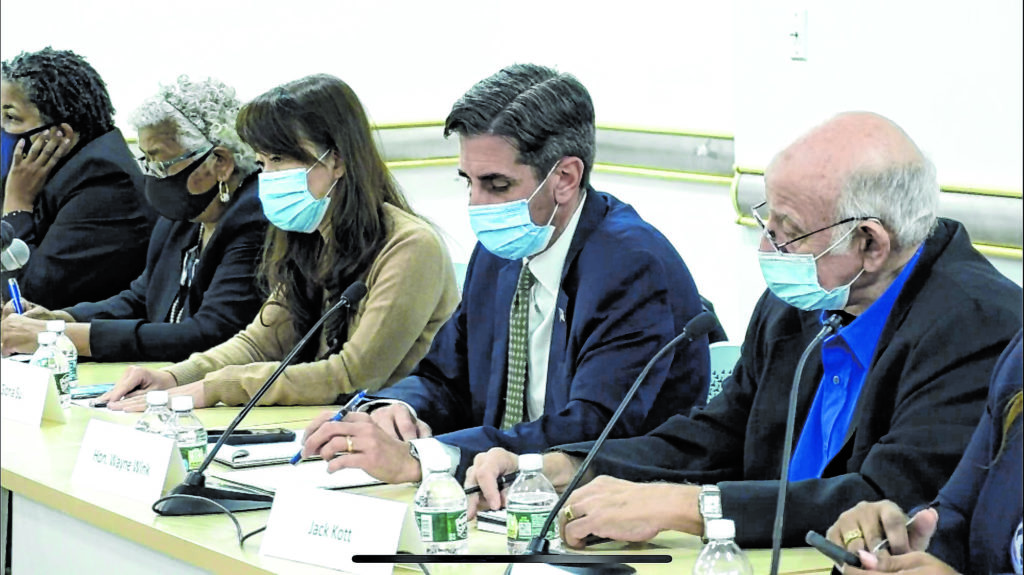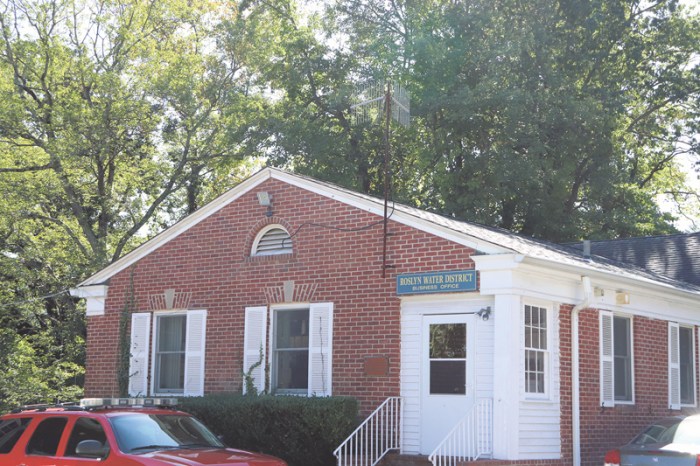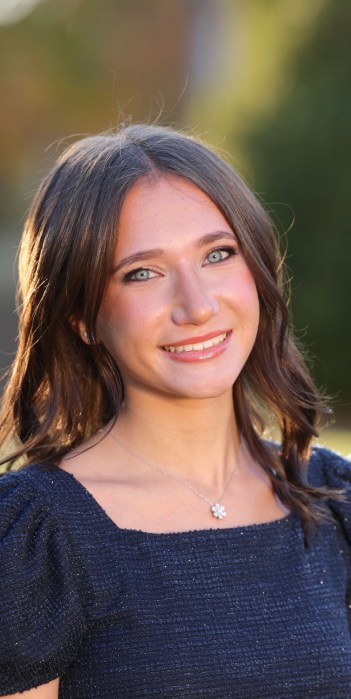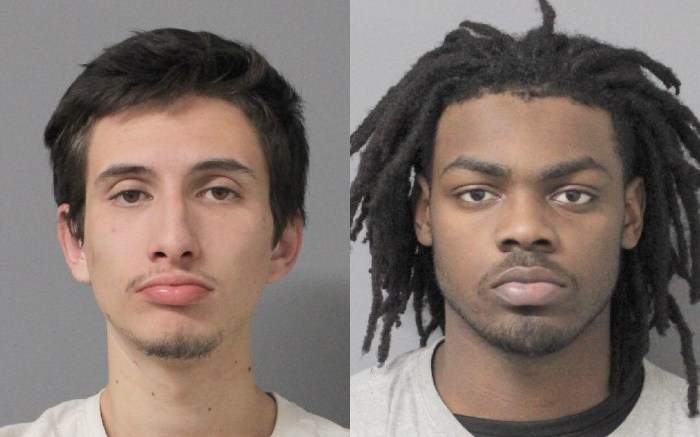
The Town of North Hempstead’s Cannabis Task Force held their final meeting last week, in which two panelists gave presentations regarding how marijuana sales and consumption may negatively or positively affect the Town.
Under New York State legislation, cities, towns and villages can render their own decision regarding recreational cannabis sales in their areas. They have until Dec. 31, 2021 to render a decision, but if they decide not to opt-out, that decision is permanent.
The first panelist to speak was Nassau County Assistant Police Chief Christopher Ferro. Ferro has been in law enforcement for 35 years. He has a background with the Narcotics Vice Squad, the Nassau County Deputy Chief of Detectives and has held extensive lectures throughout Nassau County on the opioid crisis as well as the affects of marijuana and vaping.
Ferro stated that in meeting with addicts and people who are in crisis, many of them started out with marijuana. He believes that marijuana can become a gateway to more serious drug use.
“In my research and in doing this for many years it is a gateway drug,” Ferro said. “Mainly the interviews we conduct when talking to addicts—not every body, but a good portion of them started with marijuana.”
Ferro then spoke about the recently passed New York State Law, Marijuana Regulation and Taxation Act (MRTA), which provides for the legalization of adult-use cannabis possession (in certain specified quantities) for use by adults 21 years of age or older in accordance with the provisions of the state law.
“The law says adults 21 and older can smoke marijuana legally in the streets, similar to tobacco,” Ferro said. “The law right now says you can have three ounces of marijuana at home and in public. In several months, the Office of Cannabis Management will set up permanent regulations I believe that starts in 2022, and New Yorkers will be allowed to have five pounds of marijuana at home.”
Ferro explained that individuals will not be allowed to sell marijuana under the MRTA, and harsh penalties will be levied if anyone is caught selling product on their own. Additionally, no one is allowed to sell marijuana to a minor and doing so would result in an E-felony. Vehicle traffic law will continue to prohibit smoking marijuana while driving. Ferro stated that if you are caught with marijuana in the car you will face a fine. If anyone in the car is caught smoking marijuana while driving that will be treated with the same penalties as if you are drinking and driving.
The second panelist was Neera Roopsingh, an associate with the firm of Sahn Ward Braff Koblenz PLLC. Roopsingh concentrates her practice in zoning and land use planning, municipal law and litigation and appeals. Prior to joining the firm, she served as a Deputy Town Attorney for the Town of North Hempstead.
Roopsingh began by discussing how the local zoning laws can be used to regulate certain aspects of the retail space.
“Local zoning laws are used to accomplish a municipalities goal with regards to its growth, development and can be used to help protect the general health and welfare of its constituents,” Roopsingh explained. “The town could adopt local laws that regulate the specific use of physical facilities that will be retail stores within the town. For example, the town could enact local zoning laws which places restrictions on retail sales and use facilities. Generally, the town can pass local laws governing time, place and manner of the operation of these types of facilities. Getting a bit more specific, the town can restrict these types of shops to a certain district or districts. For example they could say all retail stores can only be localed in the industrial district or the business A district or a mix of districts.”
Roopsingh also stated that the town could place physical restrictions on the stores themselves, like requiring certain setbacks from the street, or certain types of buffers on the sides or rear of the building to protect or shield it from adjacent businesses. The town also has the ability to restrict the facilities, proximity to places such as schools, houses of worship or residential areas.
“Right now, state law requires all residential dispensaries or on-site consumption sites to be at least 500 feet away from any school and at least 200 feet away from any house of worship,” Roopsingh said.
After the Cannabis Task Force asked questions of the panelists, the meeting was opened up to public comment.
One resident from Great Neck stated that there are many vacant storefronts within the village, and would like to see cannabis shops within the areas. He stated that he doesn’t believe that adding cannabis shops to the town will cause bad people to visit the area, since those that have money to buy cannabis will also spend their money at other local businesses.
Another resident stated that she is a long-term cannabis smoker and does not believe that cannabis is a gateway for more serious drug use. The resident stated that she is in favor of cannabis licenses being allowed in the town and would like to see minorities have the chance to obtain licenses rather than large corporations.
“There has to be balance; if you want the people who are out there doing it illegally to come in and participate, then we have to find a way to marry the two, otherwise it’s going to still continue on the street if not,” she said.
The Town of North Hempstead’s Cannabis Task Force will begin to craft a report which will detail what they have learned from the various speakers and will make a recommendation to the Town Board as to how they feel the town should act.
































